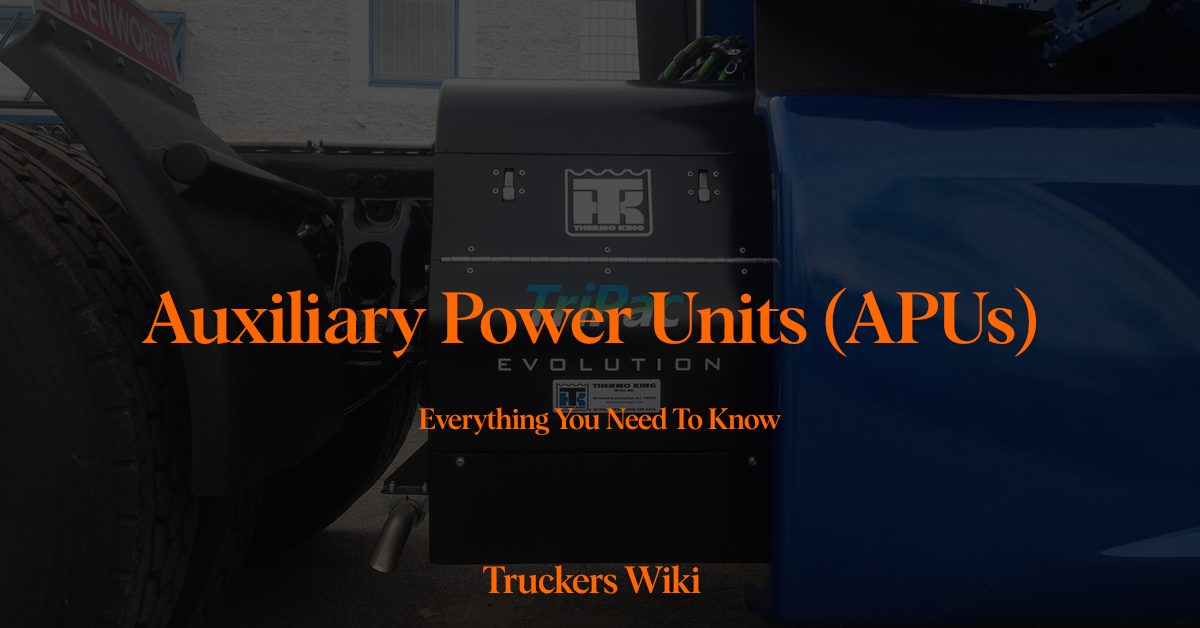
Table of Contents
Introduction to Auxiliary Power Units (APUs)
The Auxiliary Power Unit, commonly known as the APU, is a vital piece of equipment in the trucking industry. These devices provide power to truck cabs when the main engine is off, ensuring a comfortable environment for drivers while reducing fuel consumption. This article offers a comprehensive look at APUs, their functionality, benefits, and impact on the trucking industry.
What is an APU on a Truck?
An APU is a device attached to a truck that provides energy for functions other than propulsion. This small unit is designed to provide power to the truck’s systems, including heating and cooling, when the main engine is switched off.
Functionality of APUs
The primary function is to provide power for climate control in the cab and to power onboard electrical appliances without requiring the truck’s main engine to idle. This functionality is particularly important for long-haul truckers who spend extended periods inside their cab and need to maintain a comfortable living environment.
Different Types of Units
Auxiliary Power Units can be powered in a few different ways, depending on the specific model and design.
Diesel: Traditionally they run on diesel fuel, just like the truck’s main engine. They have their own small diesel engine which generates power. While they do consume fuel, it’s significantly less than the main engine would consume if it were idling.
Battery: Also known as Electric APUs, these units rely on large battery banks to provide power. When the truck is running, the main engine charges the batteries. When the truck is parked, the unit draws power from these batteries to run the heating, air conditioning, and other electrical systems. These produce no emissions and consume no fuel while in operation, making them environmentally friendly.
Hybrid: These combine features of both diesel and battery APUs. They typically use a smaller diesel engine to charge a battery bank, providing a balance of fuel efficiency and reliable power.
Each type of these has its own advantages and drawbacks. Diesel ones are often more powerful, but they consume fuel and produce emissions. Battery ones are cleaner and quieter, but they may not provide as much power, especially for extended periods. Hybrid units can provide a good balance, but they may be more expensive and complex. The best choice depends on the specific needs and constraints of the truck and driver.
Benefits of Using an Auxiliary Power Unit
Fuel Efficiency: They eliminate the need for the truck’s main engine to idle when the truck is stationary. This can lead to significant savings in fuel costs over time, considering a truck’s main engine can consume up to a gallon of fuel per hour while idling.
Reduced Engine Wear and Tear: By using an one, drivers can avoid unnecessary idling of the truck’s main engine, reducing wear and tear and extending engine life.
Regulatory Compliance: Many jurisdictions have strict regulations on engine idling times due to environmental concerns. By using this unit, drivers can comply with these regulations while maintaining a comfortable environment in their cab.
Improved Driver Comfort: With these units, drivers can maintain a comfortable temperature in their cab, use electrical appliances, and keep their electronic devices charged, all without running the truck’s main engine.
Conclusion
The Auxiliary Power Unit (APU) is an invaluable tool for truck drivers, particularly those on long-haul routes. By providing power for essential comfort functions while reducing fuel consumption and engine wear, these units contribute to the efficiency, sustainability, and comfort of the trucking industry. Whether you’re a driver looking to improve your on-the-road experience or a fleet manager seeking ways to reduce costs and comply with environmental regulations, consider the advantages that an APU can offer.
Watch a video of Dave from ET Transport talking about diesel vs. battery units.
Learn about Semi Truck Electrical System Maintenance here.

